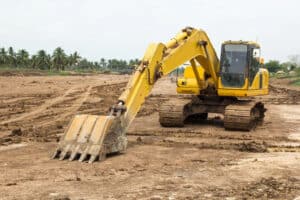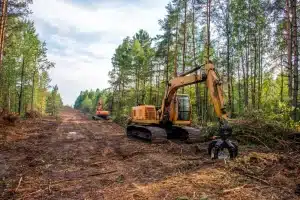In the world of civil engineering and construction, the term “excavation” holds a significant place. It is the process of digging and removing earth to create space for foundations, utilities, or any other construction purpose. While it might seem like a straightforward task, successful excavation projects require a careful blend of expertise, precision, and advanced technology. Keep reading to learn more about the key components that contribute to the success of excavation projects.
Site Assessment: The Foundation of Success
Every successful land excavation project begins with a thorough site assessment. This crucial step involves evaluating the soil composition, groundwater levels, and potential environmental impacts. Engineers and geologists work hand in hand to analyze the terrain, ensuring that the excavation process aligns with the natural characteristics of the land. This initial assessment sets the stage for effective project planning, minimizing risks, and optimizing resource allocation.
Technological Advancements in Excavation Equipment
The evolution of excavation equipment has revolutionized the efficiency and precision of land projects. From traditional backhoes and bulldozers to state-of-the-art excavators and trenchers, technology plays a pivotal role in modern excavation. Advanced machinery not only expedites the digging process but also enhances safety measures and reduces environmental impact. Telematics and GPS systems integrated into excavation equipment enable real-time monitoring and control, ensuring that every movement aligns with project specifications.
Environmental Sustainability: Excavating With a Conscience
Because the world is focused on environmental sustainability, excavation projects are under more scrutiny than usual. Engineers are now integrating eco-friendly practices into their excavation methodologies, focusing on soil conservation, dust control, and waste management. Innovations like soil stabilization techniques and the use of biodegradable hydraulic fluids contribute to minimizing the ecological footprint of excavation projects. By adopting sustainable practices, land projects can thrive without compromising the delicate balance of the surrounding environment.
Safety First: Mitigating Risks in Excavation
Excavation sites inherently pose risks to workers and surrounding structures. Prioritizing safety is non-negotiable in successful land projects. Rigorous safety protocols, proper training, and the use of protective equipment are fundamental aspects of any excavation endeavor. Additionally, advancements in sensor technology and on-site monitoring systems contribute to the early detection of potential hazards, allowing for swift intervention and risk mitigation.
Collaboration and Communication: The Keys to Project Success
Successful land excavation projects hinge on effective collaboration and communication among project stakeholders. Clear lines of communication between engineers, contractors, and project managers ensure that everyone is on the same page regarding project goals, timelines, and challenges. Regular updates and collaborative problem-solving contribute to a streamlined excavation process, reducing the likelihood of setbacks and delays.
First Due Site Services LLC Can Excavate Your Project
Land excavation projects are intricate endeavors that require a harmonious blend of science, technology, and environmental consciousness. From the initial site assessment to the careful selection of excavation equipment, each step plays a crucial role in the success of the project. If you’re in need of excavation for your next project, contact First Due Site Services LLC for more information. We look forward to helping you complete your project.




